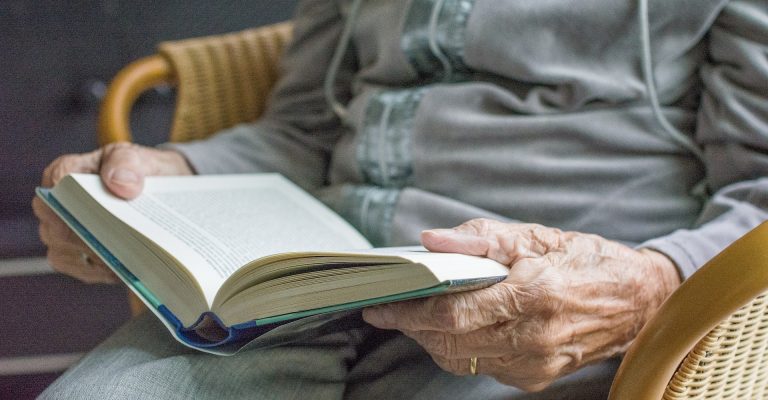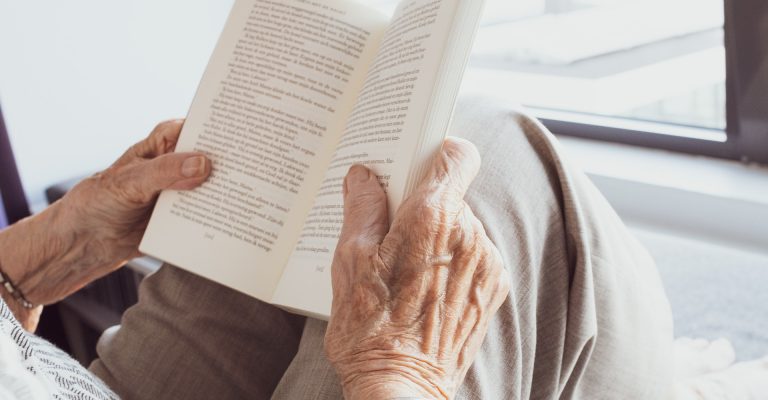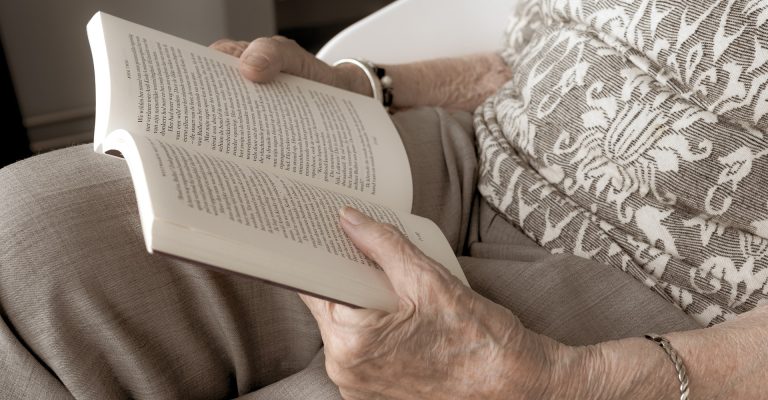
Stroke recovery can be a long and challenging journey. With the right books, however, it doesn’t have to be. There are many excellent resources to help stroke survivors on their way to a complete recovery. If you or someone you know is seeking guidance on stroke recovery, this list of fifteen great books will be helpful!
From inspirational stories about conquering disabilities caused by strokes to advise about daily life improvements that improve overall health post-stroke, these titles will provide beneficial information and support while recovering from a stroke. So keep reading for our top picks for the best books on stroke recovery in 2023!
Stroke is a debilitating medical condition affecting millions of people worldwide. Surviving a stroke can be a traumatic experience, and recovery can be challenging. However, there is hope for stroke survivors looking to regain their strength, mobility, and independence. One such source of hope is the book “Stronger After Stroke” by Peter Levine.
“Stronger After Stroke” is a comprehensive guide that offers stroke survivors insights, tips, and techniques to help them recover and regain control of their lives. The book has been widely acclaimed by medical professionals, rehabilitation experts, and stroke survivors alike as a definitive resource on stroke recovery.
The book covers various topics related to stroke recovery, including exercises, adaptive equipment, home modifications, and coping strategies. It also provides insights into different types of strokes, their causes, and their effects on the body. Moreover, “Stronger After Stroke” is grounded in the latest scientific research and is filled with real-world examples of stroke survivors who have used the techniques outlined in the book to make remarkable progress in their recovery.
One thing that makes “Stronger After Stroke” such a valuable resource is its focus on empowerment and self-reliance. The book emphasizes the importance of taking an active role in one’s own recovery and gives readers the tools they need to do just that. Whether you are a stroke survivor or a caregiver trying to help a loved one recover, “Stronger After Stroke” is a must-read book that provides crucial information and practical advice for anyone navigating the stroke recovery journey.
Hope After Stroke: The Rehabilitation and Nursing/Caregiver Guidebook is an exceptional literary work by Tsgoyna Tanzman that provides invaluable insights and information on stroke recovery. This book is a comprehensive guidebook that serves as an indispensable resource for stroke survivors, their families, caregivers, and healthcare professionals alike. It is a must-read for everyone affected by a stroke and seeking practical solutions to overcome its aftermath.
Tanzman delves deep into the various aspects of stroke recovery, offering useful tips and strategies for recovery, rehabilitation, and long-term care. The book covers everything from the basics of stroke and its causes to the different types of strokes, symptoms, and diagnoses. In addition, Tanzman provides a detailed overview of the various available treatment options, including medication, therapy, and surgery, while emphasizing the importance of a healthy lifestyle.
This book’s focus is on a multidisciplinary approach to stroke recovery. Tanzman highlights the roles of different healthcare professionals – from physicians and therapists to social workers – in the recovery process and provides practical tips on forming a strong rehabilitation team. Moreover, the book delves deep into the psychological and emotional impact of stroke on survivors and their family members, which is often overlooked but crucial in the healing process.
With Hope After Stroke, Tanzman does not shy away from discussing the challenges faced by stroke survivors and their loved ones but instead shows that overcoming them with the proper care, support, and determination is possible. This book offers hope to those struggling with stroke recovery and provides them with the tools to lead a fulfilling life.

“My Stroke of Insight” is a compelling memoir written by neuroanatomist Jill Bolte Taylor, where she narrates her fascinating journey of recovering from a stroke. The powerful and emotional book offers an honest and inspiring account of Taylor’s triumph over a life-changing event.
The book is highly recommended for stroke recovery because it provides invaluable insights into the human brain and how it functions. Taylor explains in detail how her experience with stroke affected her brain, personality, and perception of the world around her. Her unique perspective as a brain scientist and stroke survivor gives readers a better understanding of stroke victims’ cognitive and emotional challenges.
Moreover, “My Stroke of Insight” is an excellent resource for stroke patients, as it offers practical tips and strategies for recovery. For example, Taylor recommends various techniques for reconnecting with the body and mind, such as meditation, breathing exercises, and visualization. These techniques help patients regain control of their thoughts and emotions and build the resilience to recover from a traumatic event like a stroke.
Besides being a useful guide for stroke recovery, “My Stroke of Insight” is an uplifting and thought-provoking read for anyone interested in neuroscience, spirituality, and personal growth. Taylor’s healing journey is a testament to the power of the human spirit, and her message of hope and perseverance inspires all.
This book is a must-read for anyone who wants to improve their overall health, especially those looking to recover from a stroke. The book outlines the various lifestyle changes that can help promote brain health and recovery, such as getting enough quality sleep, regular exercise, stress management, and reducing exposure to toxins. Perlmutter also provides practical tips on implementing these changes in one’s daily life.
For stroke recovery specifically, Brain Maker offers valuable insight into the connection between gut and brain health. Research suggests that a healthy gut can help promote stroke recovery by reducing inflammation in the brain, promoting the growth of new brain cells, and improving overall brain function. As such, this book provides a roadmap for those who want to achieve optimal post-stroke recovery by adopting healthy lifestyle choices and dietary changes.

Kari Dahlgren, a stroke survivor, brings a unique perspective. She shares her personal journey of recovery and her experience as a stroke recovery educator and advocate. Her insights and advice are based on research and real-life experience, making this book a valuable resource for anyone looking to navigate the challenges of stroke recovery.
The book covers a wide range of topics, from the early days after stroke to long-term recovery. It provides practical advice on everything from setting goals and managing fatigue to dealing with emotional challenges such as depression and anxiety. The book also includes a wealth of resources for stroke survivors and their families, including tips on finding the right healthcare providers, navigating insurance coverage, and accessing community support.
One of the key strengths of this book is its focus on finding happiness after a stroke. Kari Dahlgren emphasizes the importance of setting achievable goals and finding joy in everyday life, even in the face of significant challenges. She shows readers how to identify their strengths and build on them and how to create a support network that can help them on the road to recovery.
The “Stroke Recovery Activity Book” by Guara Press is an invaluable resource for individuals who have suffered from a stroke and are looking for an effective way to regain mobility and independence.
It is designed specifically for stroke patients, meaning that its activities are tailored to meet the needs of these individuals. This is extremely important as stroke patients often face challenges not addressed in generic rehab programs. The activities in the book are presented in a clear and easy-to-follow format, making them accessible to patients of all levels of ability.
Another great feature of the “Stroke Recovery Activity Book” is that it is very comprehensive, covering a wide range of topics related to stroke recovery. For example, it includes sections on speech and language therapy, memory and cognitive function, and emotional and psychological well-being. These are crucial aspects of stroke recovery, and the book provides valuable guidance and support for patients struggling with these issues.
If you want to get well, arming yourself with knowledge is helpful since you are the one in control of your rehabilitation. Written words are a great way to connect with other survivors, and numerous books on recovering from a stroke also address the psychological component of the process. With any luck, you’ll be able to read some of these books on stroke recovery and come away with a deeper understanding of how you may aid in your own rehabilitation.